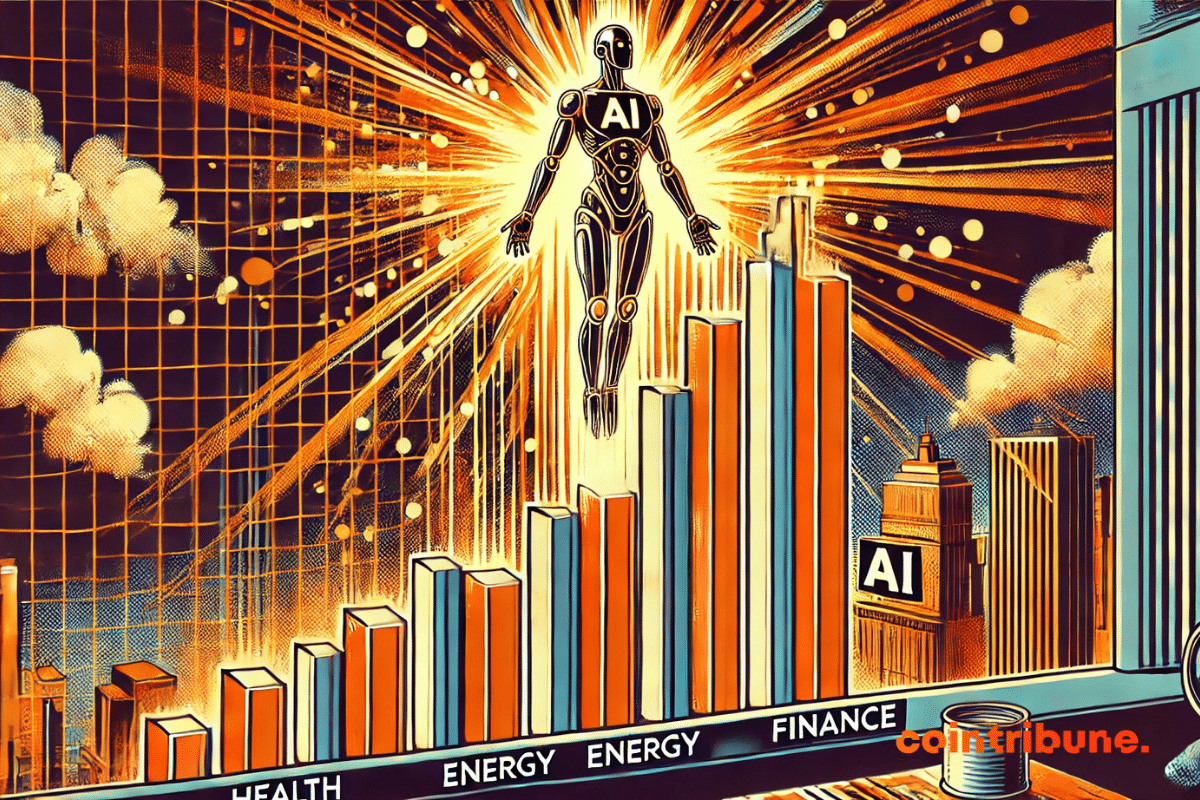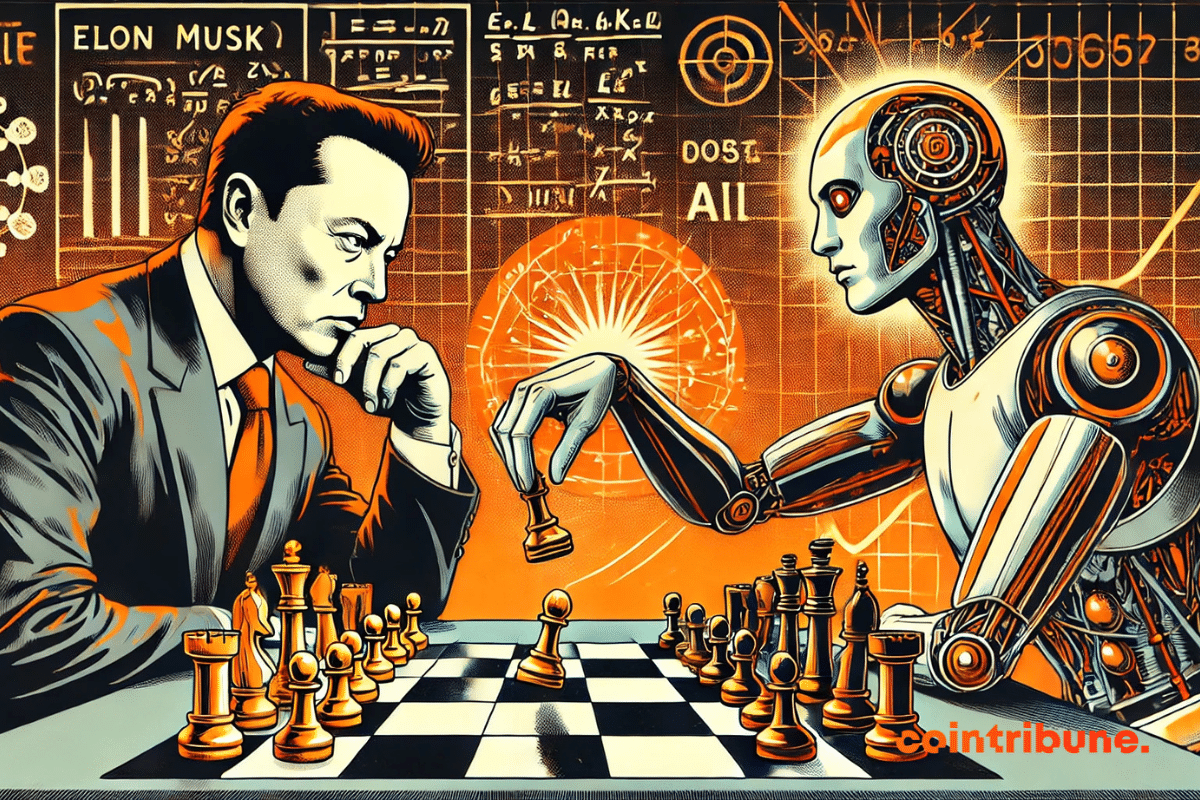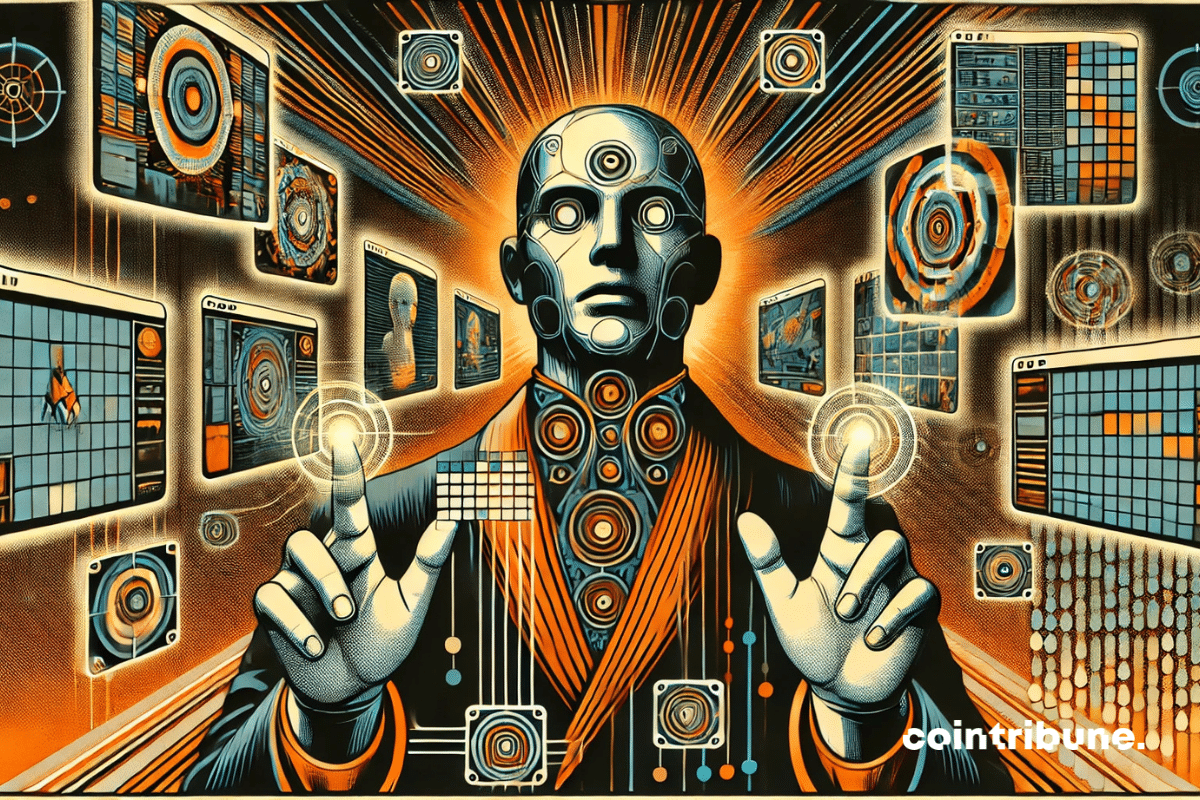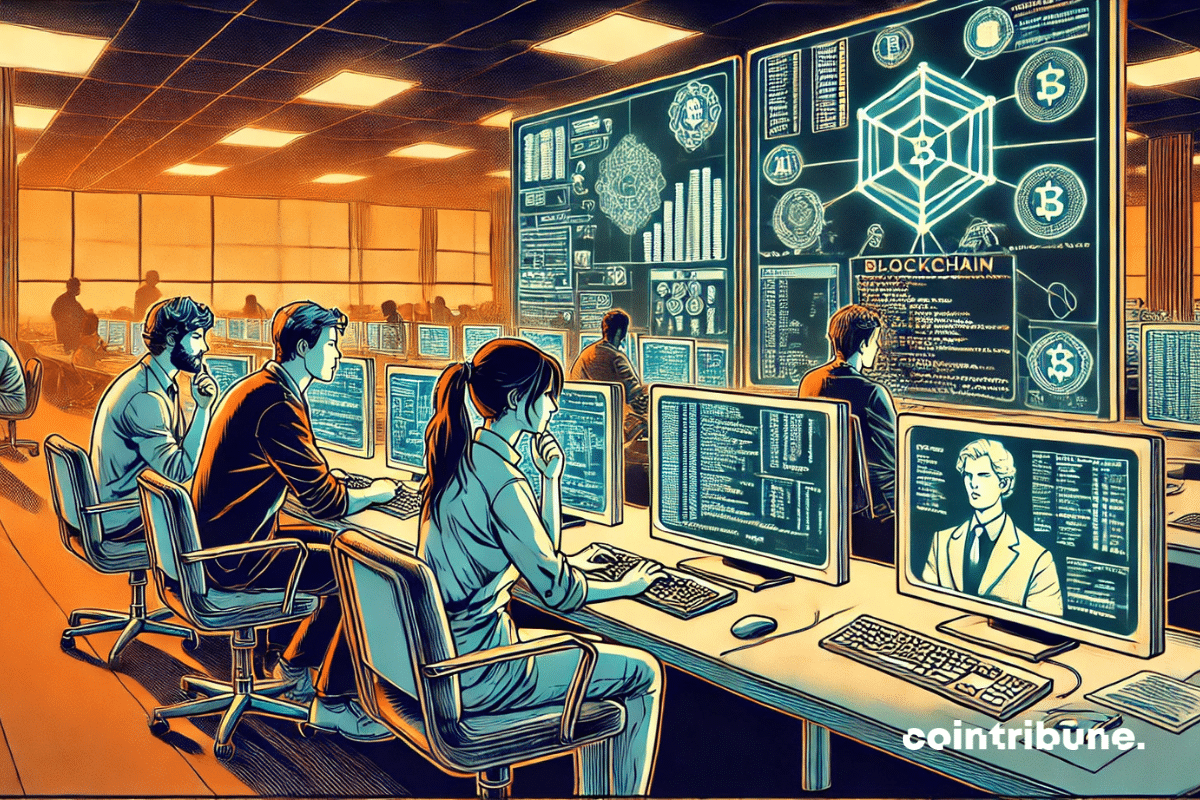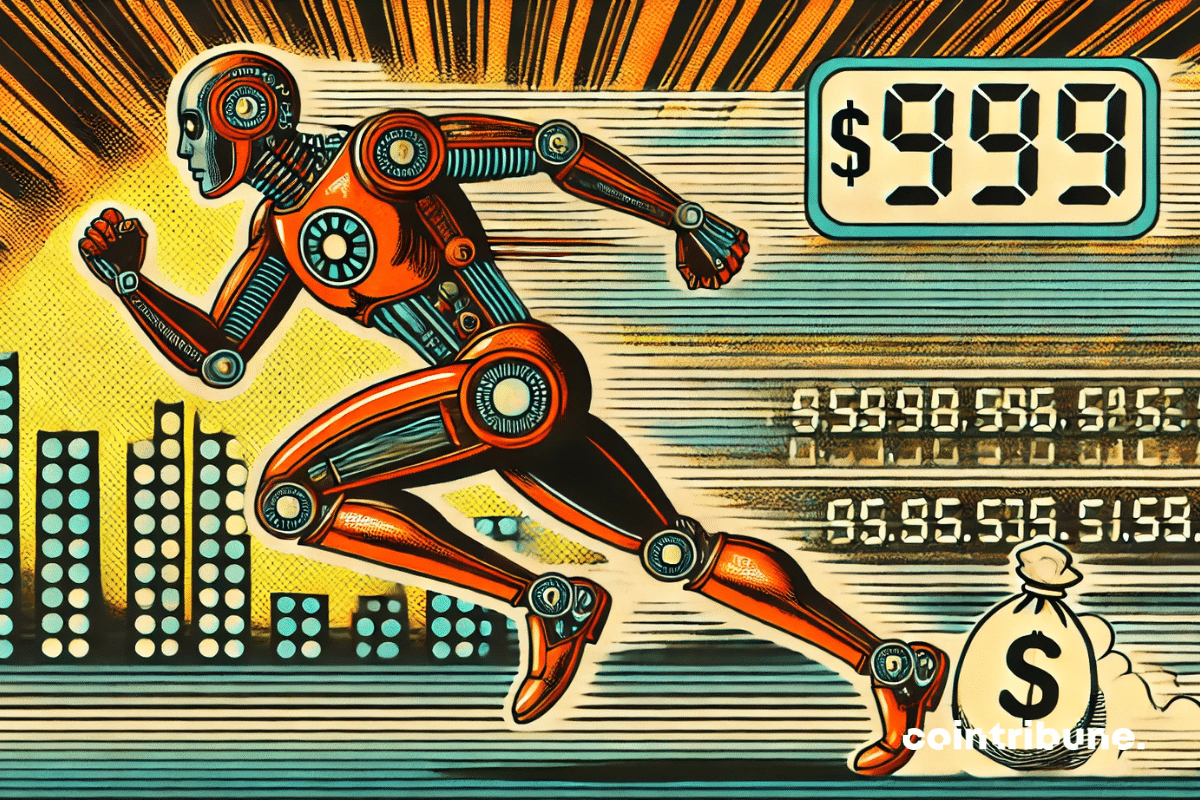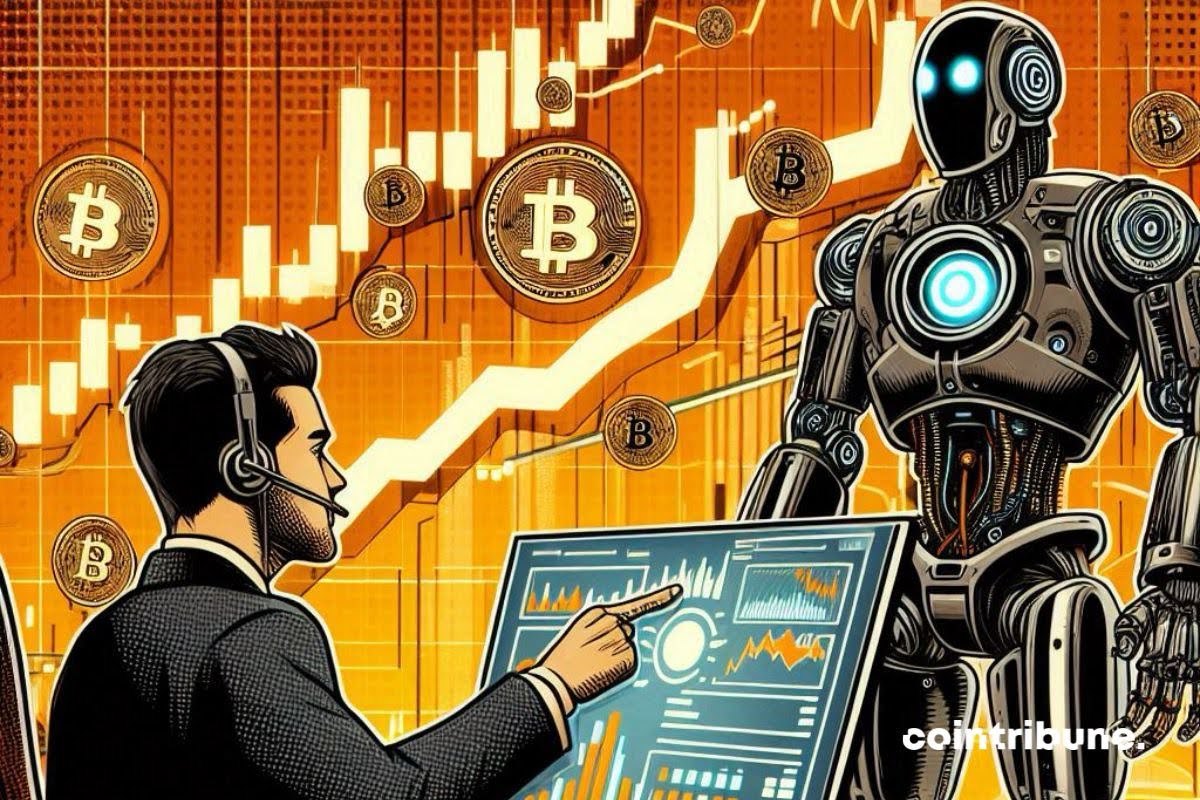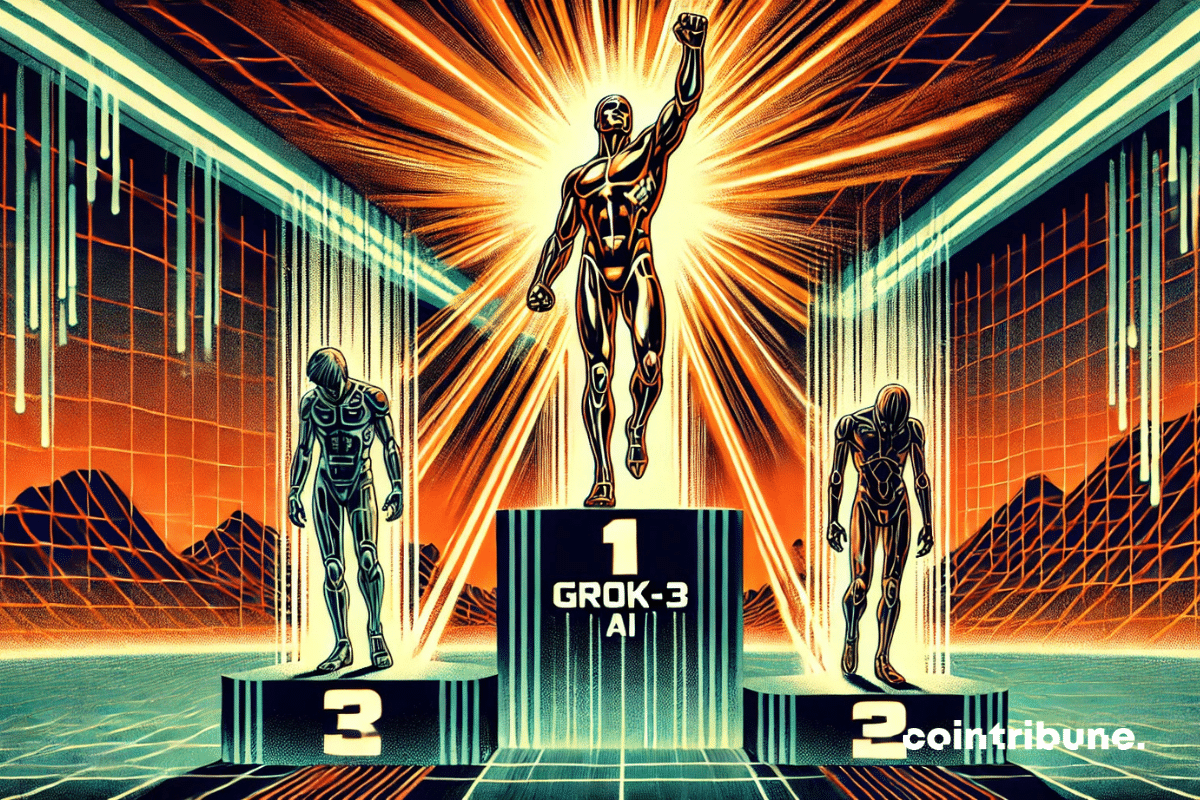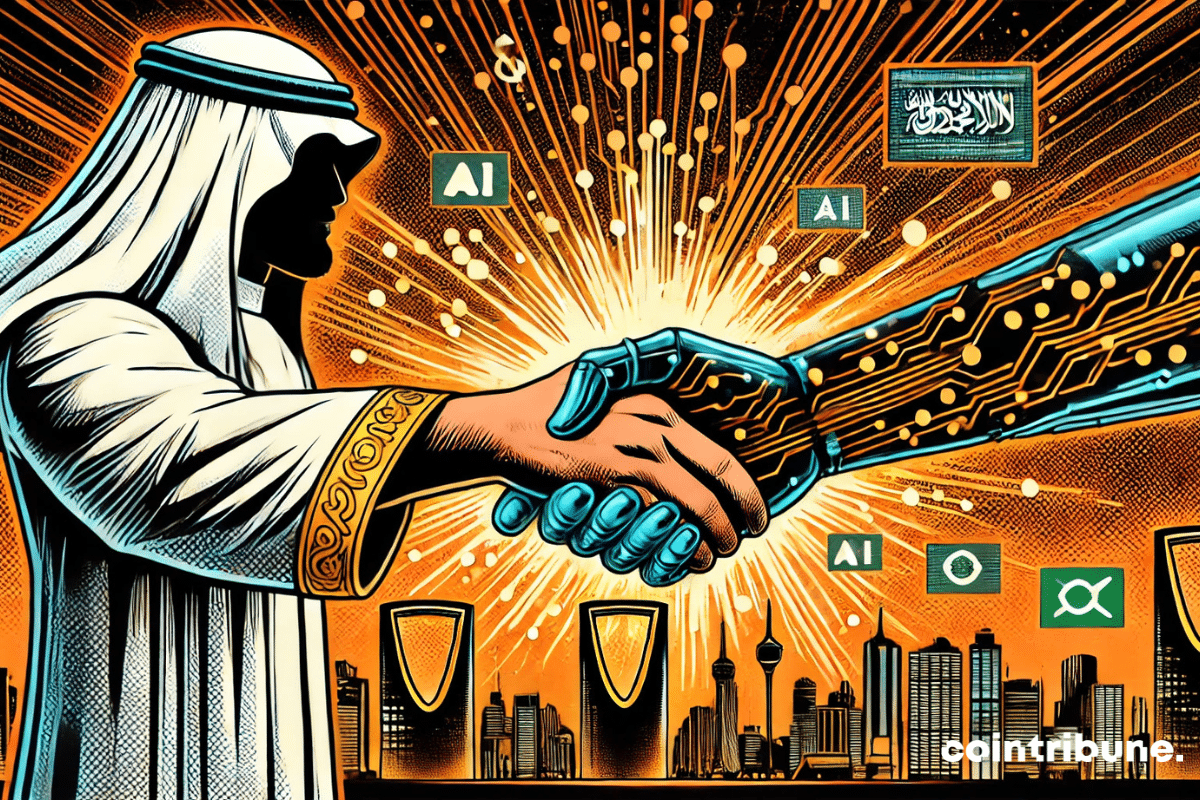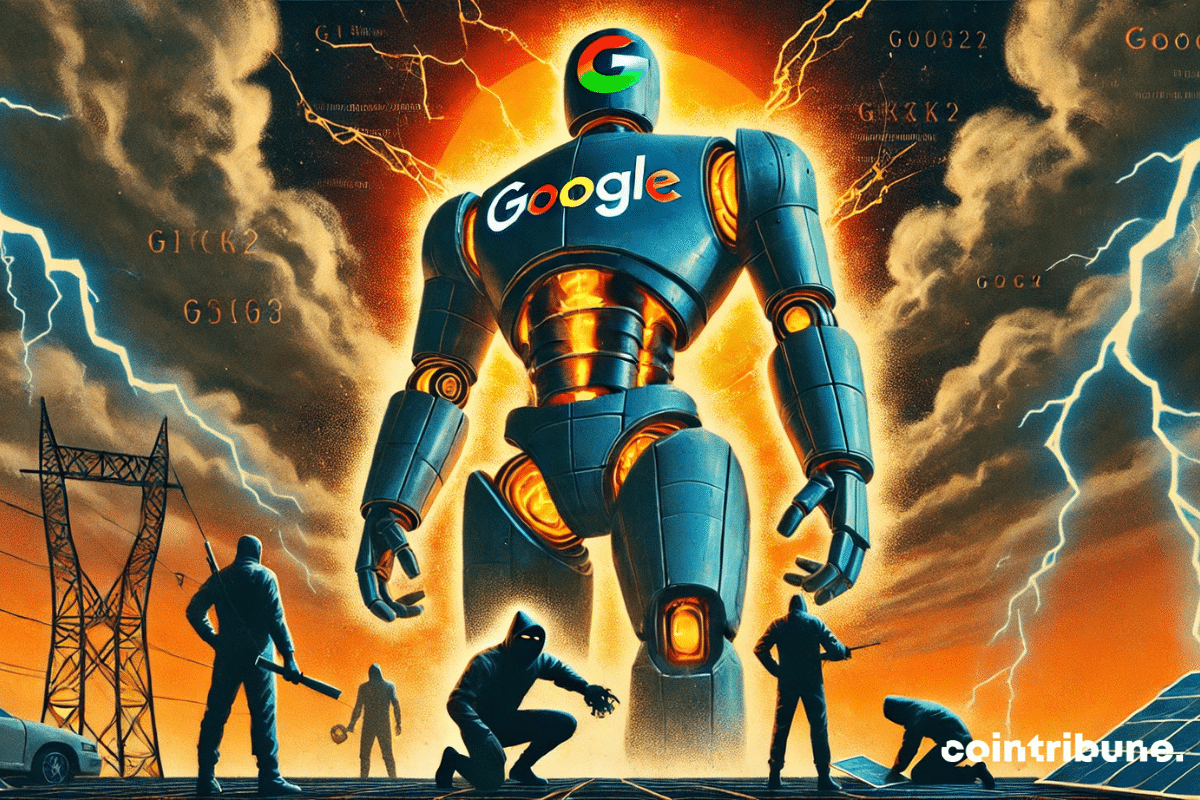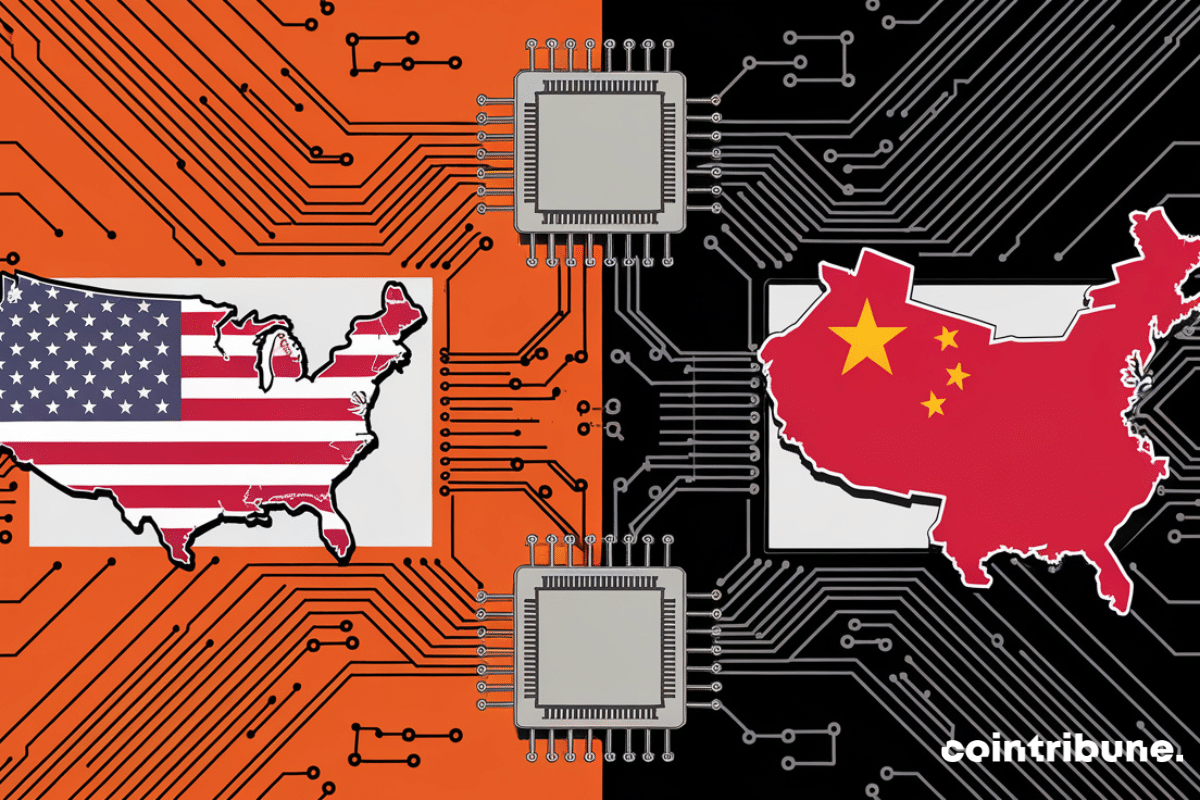AI devours investors' dollars, leaving cryptos to nibble on the crumbs. OpenAI pocketed 40 billion, while Binance tries to keep up with 2 billion. Welcome to the AI rush.
Theme Artificial Intelligence
In 2025, the crypto universe looks like a movie scene where the same actors return, despite expectations of a new script. According to CoinGecko, AI tokens and memecoins still capture 62.8% of investors' attention in the first quarter. This dominance raises questions: is the market destined to recycle its old successes, or does this persistence hide a subtle transformation?
OpenAI, the famous AI company, is reportedly developing a social network "like X," thus putting the AI giant on a direct collision course with Elon Musk. According to anonymous sources, this ongoing project combines ChatGPT's image generation tools with a social feed, allowing users to share their AI-generated image creations.
ChatGPT-4.5, OpenAI's latest innovation, has reached a significant milestone by passing the Turing test with an impressive success rate of 73%. This advancement demonstrates the ability of modern AIs to convincingly mimic human conversation, but also raises concerns regarding the risks of manipulation and fraud.
For the first time in its history, tech giant NVIDIA is launching the production of artificial intelligence supercomputers entirely in the United States. This strategic initiative aims to strengthen the American supply chain in the crucial AI sector.
Artificial intelligence feeds on data. But how far can it draw from our digital lives? The answer is taking a new turn in Europe. Meta has just obtained approval from European regulators to train its AI models on public content shared by its users. A decision that raises as many technological hopes as ethical questions.
OpenAI accuses Elon Musk of attempting to take control of AI through a fictitious takeover bid. An unprecedented legal battle begins!
Meta has just unveiled Llama 4, its most advanced artificial intelligence model to date. According to David Sacks, AI advisor at the White House, this technological advancement restores the United States' edge in the global competition for supremacy in AI.
The year 2025 starts on a contrasting note for the crypto industry. While DeFi protocols suffer from a marked decline in their total value locked (TVL), decentralized applications, especially those focused on artificial intelligence (AI) and social networks, show solid growth. What are the drivers of these opposing dynamics and what prospects lie ahead for the ecosystem in the coming months?
Sentient Is Redefining AI Research With A Breakthrough Solution That Surpasses GPT-4o And Perplexity
Artificial intelligence is entering a new era. Sentient, a startup funded by Peter Thiel's Founders Fund, is launching Open Deep Search (ODS), an open-source AI search system that significantly outperforms market leaders like OpenAI's GPT-4o and Perplexity.
Anthropic unveils the Model Context Protocol (MCP), an open-source standard that revolutionizes the connection between AI and business applications. This standardized protocol facilitates access for models like Claude to external data, paving the way for truly integrated intelligent assistants within workflows.
A French team secured third place at the prestigious Qubic 2025 Hackathon held in Madrid. Their project QuLang, which revolutionizes access to artificial intelligence on the Qubic blockchain, impressed the jury with its innovative approach to decentralized inference of large language models.
Google has just dropped a new bomb in the race for artificial intelligence (AI): Gemini 2.5. Presented as a "thinking" model, it does not merely regurgitate answers; it analyzes, reasons, and reflects before speaking. With a major advancement in coding, reasoning, and multimodality, Google hopes to catch up with OpenAI and its other rivals. But is it enough to disrupt ChatGPT, which remains comfortably at the top of the market with 43% market share?
Meta's artificial intelligence is finally available in Europe after a long tug-of-war with regulators. Meta AI, already integrated into the group's applications in the United States, is gradually rolling out in France and 40 other European countries. It is now appearing on WhatsApp, Instagram, Facebook, and Messenger, profoundly changing the interaction of users with Mark Zuckerberg’s group platforms.
OpenAI has just announced the launch of new tools for developers, making it easier to create advanced AI agents. This initiative comes as Chinese startups, such as Monica and DeepSeek, are offering high-performing alternatives, often at a lower cost.
The Token Generation Event (TGE) of Runbot ($RBOT) is finally here! This innovative project, supported by GAINS, is revolutionizing automated trading through artificial intelligence (AI). As of today, March 10, 2025, $RBOT is listed on Uniswap. Find out why this launch has been so highly anticipated!
In a market as volatile as cryptocurrencies, every second counts. RunBot, with its state-of-the-art AI (artificial intelligence), is transforming automated trading by providing traders with powerful tools to maximize gains and reduce risks. Here's how you can enhance your trading experience with AI.
Artificial intelligence has just crossed a new milestone, and this time, a storm is brewing. GPT-4.5, the latest creation from OpenAI, is crushing the track with an outrageous ambition: to dominate by size. While 2025 is already overwhelmed by announcements of rival models – such as Claude from Anthropic or…
In the world of trading, precision and speed are major assets. Thanks to artificial intelligence, it is now possible to optimize performance and automate trading strategies. RunBot, an innovative platform, offers a turnkey solution for traders looking to harness the power of AI.
Microsoft is preparing to host the new versions of OpenAI's language models, including GPT-4.5 and GPT-5. According to recent information, the first implementation of GPT-4.5 could take place as early as next week, while GPT-5 is expected by the end of May.
Artificial intelligence has never been closer to redefining the future of space exploration. As industry giants are engaged in a fierce battle to develop the most advanced language models, Elon Musk and xAI make a significant move with Grok-3, which outperforms its direct competitors and marks a major turning point in the race for AI. More than just a technological feat, this advancement paves the way for an even greater ambition: to send a Tesla Bot robot to Mars by 2026. A bold project that generates as much enthusiasm as it does questions.
The crypto industry, once synonymous with financial innovation, is now becoming a prime playground for increasingly sophisticated scams. While 2024 has already been marked by an explosion of digital fraud, Chainalysis sounds the alarm: 2025 could very well be the most lucrative year in history for cybercriminals. Artificial intelligence (AI), once seen as an asset to enhance security, is now becoming a formidable weapon in the hands of fraudsters. Identity falsification, voice impersonation, automation of psychological manipulations... the new strategies of scammers are pushing the boundaries of the possible.
Sam Altman, the CEO of OpenAI, has just announced significant updates regarding the evolution of its artificial intelligence models, with the upcoming arrival of GPT-4.5 and GPT-5. This new roadmap aims to simplify the user experience and unify the different technologies developed by the company.
Artificial intelligence is reshaping global economic balances, and Saudi Arabia intends to establish itself as an essential player. With a massive investment of $14.9 billion announced at the LEAP 2025 Tech Conference in Riyadh, the country clearly showcases its ambition: to become a leading technology hub. Thanks to its partnerships with giants like Google, Alibaba, Lenovo, and Qualcomm, the kingdom is not just injecting capital; it is building the infrastructure that could shape the future of innovation in artificial intelligence and cloud computing.
In an era where artificial intelligence is emerging as an essential strategic lever, France is preparing to host one of the most ambitious projects in Europe: the construction of a campus dedicated to AI supported by the United Arab Emirates. With an announced investment between 30 and 50 billion euros, this initiative represents a significant advance in the international competition for technological sovereignty and computing power. Behind this announcement lies a clear objective: to make France a European hub for artificial intelligence, thanks to cutting-edge infrastructure capable of competing with American and Chinese giants.
While Google drowns AI in a rain of dollars, a small Chinese genius tinkers in his garage and shakes Silicon Valley. Butterfly effect or storm to come?
Artificial intelligence has become a major strategic issue. From the United States to China, passing through Europe, economic powers are competing to dominate this key sector. Far from standing on the sidelines, India has just announced the development of its own generative AI model, scheduled for 2025. With a massive acquisition of graphics processors and a $20 billion investment plan in infrastructure, the country shows a clear ambition: to strengthen its digital sovereignty and assert its technological autonomy. This initiative comes as technological tensions between Washington and Beijing are escalating and as American restrictions on Nvidia chips complicate access to cutting-edge technologies. At the same time, the emergence of open-source models like DeepSeek R1 is shaking up the rules of the game, proving that it is possible to develop a high-performing AI without having the same resources as the industry giants.
OpenAI recently signed an agreement with the United States national laboratories to deploy its most advanced artificial intelligence (AI) models for scientific research. This collaboration aims to strengthen the technological leadership of the United States and contribute to major advancements in several scientific disciplines.
AI trading agents are revolutionizing the crypto world by automating and optimizing transactions. Using advanced algorithms, these agents analyze markets in real time, identify opportunities, and execute trades—offering traders increased efficiency and precision in their investments. Here’s how you can leverage AI agents to enhance your crypto trading experience.
The Chinese AI DeepSeek has caused an earthquake within American tech. The geopolitical power dynamics have just changed.
